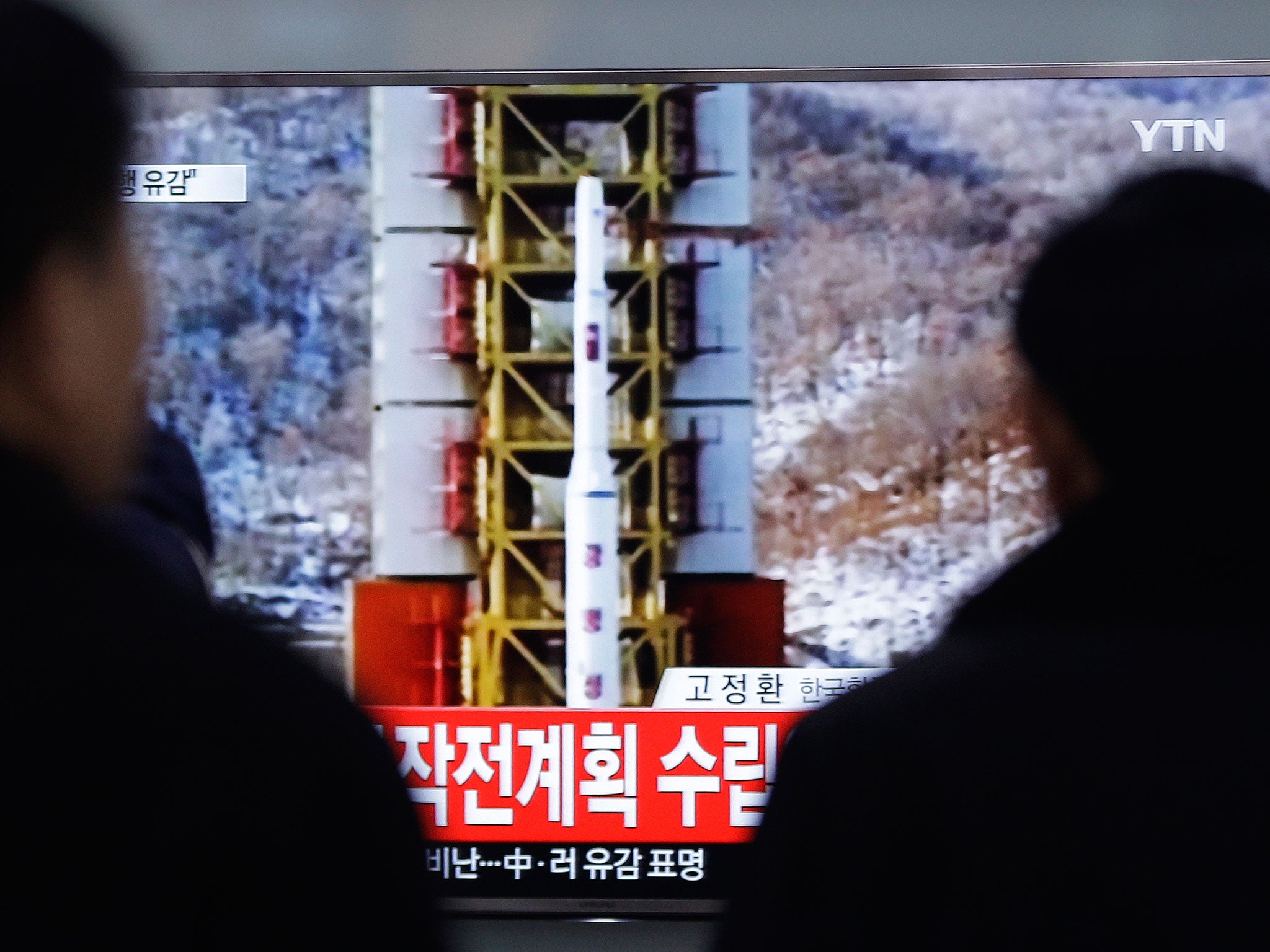North Korea's missile launch: Only China can meaningfully engage with the country and it shows little sign of doing so
China is, after all, North Korea’s sole friend on the planet, but an increasingly distant one

Your support helps us to tell the story
From reproductive rights to climate change to Big Tech, The Independent is on the ground when the story is developing. Whether it's investigating the financials of Elon Musk's pro-Trump PAC or producing our latest documentary, 'The A Word', which shines a light on the American women fighting for reproductive rights, we know how important it is to parse out the facts from the messaging.
At such a critical moment in US history, we need reporters on the ground. Your donation allows us to keep sending journalists to speak to both sides of the story.
The Independent is trusted by Americans across the entire political spectrum. And unlike many other quality news outlets, we choose not to lock Americans out of our reporting and analysis with paywalls. We believe quality journalism should be available to everyone, paid for by those who can afford it.
Your support makes all the difference."Absolutely unacceptable” to Japan. “Unacceptable” to South Korea. “A serious aggravation” to Russia. The reaction among most of her neighbours to North Korea’s missile launch has been routine, but no less sincere or concerned for that.
Of course, this is far from the first time the Kim dynasty has lobbed a ballistic rock into diplomatic waters, and the nuclear weapon test a few weeks ago was arguably more significant (although in the end it seems not to have achieved H-bomb status). Still, it all points in the same terrifying direction – to the development of some kind of viable intercontinental ballistic missile (ICBM) with a nuclear warhead capable of crossing the Pacific and reaching anywhere in the continental United States.
There are more immediate dangers. North Korea’s crude nuclear weaponry, vast army (in manpower the largest military force on earth at nine million personnel) could be unleashed on South Korea at any moment. The fanatical nationalism of the North Korean people – the product of decades of state-devised propaganda – means even Kim Jong-un might not be able to prevent that, were he inclined to. With Seoul only 35 miles from the border with the North the hazards are plain. Even if this cold war does not finally turn hot, the geopolitical tensions can rapidly destabilise economies and financial markets. In 2016, taking into account the obvious fragility now widespread across North Africa and the Middle East, the last thing the world needs is another regional crisis.
Against Isis there is the possibility of military solution, and with Iran we have seen diplomatic efforts work well. With North Korea neither seems possible. In this sense, the so-called “Hermit Kingdom” is a far more formidable enemy to the West than others, not least because of its perceived volatility.
The answer, oddly, has been offered up by Donald Trump, who said last month: “Let China solve that problem.” He is correct.
The UN Security Council can meet all that it wants, pass all the resolutions it wishes and ramp up the sanctions, but Pyongyang has form in ignoring such measures. The government has few reservations in squeezing its own economy and trade output, serving only to make it a more unpredictable and desperate rogue state.
China is, after all, North Korea’s sole friend on the planet, but an increasingly distant one. Beijing’s reaction to the missile test was relatively mild – “regret” – and not as vigorous as after the atom bomb test at the start of the year. The irony is that Kim would like China to pay his country more attention than it does the South. But the prosperous and more technologically advanced country to the south is a more useful ally than North Korea could ever be under its current ideology, so Chinese leaders have increasingly snubbed Kim. Hence Kim’s threatening missile and nuclear tests, as well as his belligerent language.
China is also an incompetent guardian of its Stalinist charge, unable to exercise economic leverage to political advantage. Xi Jinping also fears a wave of starving North Korean refugees storming the border if the North’s economy turned to a point of no return (severe famines have resulted in cannibalism before). Thus China allows Kim to limp on, and tolerates his mad behaviour, to the consternation of the world.
And so, like the Balkans before 1914, this region exists in a state of permanent rivalry and instability, with the ever present possibility that one false move could ignite an appalling conflict. And we have a very good idea, as if we didn’t before, of which of the actors is most likely to make such an irrational move.
Join our commenting forum
Join thought-provoking conversations, follow other Independent readers and see their replies
Comments